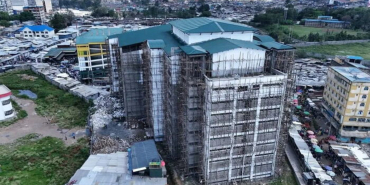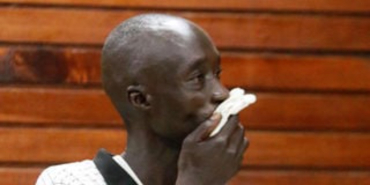From Majengo to Marsabit: The Untold Stories of Missing Kenyans

The spectre of enforced disappearances continues to haunt Kenya's counterterrorism efforts, leaving a trail of unresolved cases and anguished families.
The disappearance of Hemed Salim, an electrician and member of the Masjid Musa mosque congregation in Mombasa, during a controversial police raid on February 2, 2014, exemplifies the ongoing crisis. Salim's case, along with others, highlights the urgent need for accountability and systemic reforms within Kenya's security apparatus. The 2014 raid on Masjid Musa, during which seven people died, including the mosque's muezzin and a Rwandan national, remains a contentious event.
Salim was reportedly detained during the operation, but authorities later claimed he had escaped, a narrative his family disputes. His wife, Sada Suleiman, watched her husband's arrest on television and subsequently embarked on a relentless search across police stations, hospitals, and morgues with the support of human rights groups such as Haki Africa and Muslims for Human Rights (MUHURI). The lack of official records or explanations has compounded her anguish.
Hemed's three children have grown up without their father, facing financial and emotional hardships, while Sada remains desperate for answers and closure. Hemed Salim's disappearance is emblematic of a broader pattern of enforced disappearances that have plagued Kenya for over a decade. Human rights advocates report that such cases have become a recurring feature of counterterrorism measures, particularly after Kenya's military intervention in Somalia and subsequent retaliatory attacks by al-Shabaab militants.
Victims, often Muslims from coastal and marginalised regions, are frequently last seen in the custody of plainclothes officers, with families facing silence and denial when seeking accountability. A 2023 report by Haki Africa and the Justice Forum, titled "Gone but Not Forgotten: Unlawful Killings and Enforced Disappearances of Kenyan Muslims," documented 82 cases between 2012 and 2023. The report highlighted that the majority of victims were linked to Kenya's elite anti-terror units, raising serious questions about state complicity and abuse of power.
These disappearances have eroded public trust in law enforcement and the judiciary, as the constitutional right to habeas corpus—the legal principle compelling authorities to produce a detained individual—has yet to yield a successful petition forcing police to account for the missing. Kamau Ngugi of the Defenders Coalition argues that this judicial impasse drives affected communities to seek informal justice, further undermining the rule of law. The ripple effects of enforced disappearances extend beyond the coastal region, as evidenced by cases in Marsabit County, where ethnic clashes in 2022 resulted in similar incidents.
One chilling example is the disappearance of Kuni Elle, a businessman who vanished amid the violence in Marsabit. Soon after, his son, Molu Yattani Elle, was reportedly abducted from his Nairobi home by individuals believed to be Directorate of Criminal Investigations (DCI) officers. Neither man has been seen since, amplifying the pain of families grappling with an opaque justice system. Similar heartbreak persists in Nairobi’s Majengo area, where Zena Wanjiku Ali has spent years mourning her husband, Sylvester Opiyo, also known as Musa Osodo.
Despite facing terror-related charges, Musa was never convicted and was last seen in 2012 when police stopped the vehicle he was travelling in en route to Kisumu. Witness accounts describe Musa and his companion being forcibly removed from the car, their fates unknown to this day. For Zena’s children, the consequences of their father’s unresolved status are tangible—they face hurdles in acquiring national ID cards and pursuing higher education, perpetuating cycles of marginalisation.
The implications of enforced disappearances transcend individual families, posing a profound challenge to Kenya’s democratic and judicial institutions. When the state fails to account for missing persons, it risks fostering alienation and distrust among communities, many of whom feel targeted based on religious or ethnic profiling. This sentiment is particularly acute in Kenya’s coastal region, where Muslims have voiced concerns about being disproportionately affected by counterterrorism policies.








Add new comment